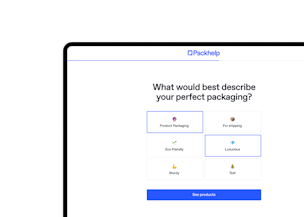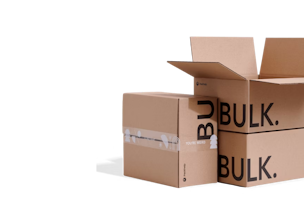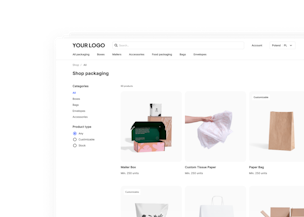Vendor Managed Inventory (VMI): What Are the Advantages and How Does It Work?

Subscribe to stay updated
You're now subscribed!


Anyone who’s ever worked in retail knows that inventory management is a bit of a chore - vital, but a chore nonetheless. Stocktaking is laborious, often involves serious downtime, and employees hate it.
What’s more, while you’re slogging through a stock check, it’s very easy to lose sight of important aspects like product quality and sales patterns. Every product becomes a number that’s to be forgotten about the second it’s entered into the system.
What’s the solution? Well, many businesses are taking on the burden of inventory management themselves. While at first glance this might seem like transferring the work from one point to another, it actually makes a lot of sense.
Vendor managed inventory systems – whether single, multi, or omnichannel - are becoming more and more popular. Businesses that implement them well find that they both cut costs and boost profits without adding much extra workload.
But what exactly are they? How do they work? And how can you use vendor inventory management systems to your advantage?
That’s the aim of this article. In this article, you will learn the answers to the following questions:
- What is vendor managed inventory?
- How can a vendor managed inventory system help you?
- What are the best practices for using a vendor managed inventory system?
Let’s dive in!
What is vendor managed inventory?
Vendor managed inventory is a system whereby a retailer’s inventory is managed by the vendor, not the retailer themselves.
Let’s say, for example, that you run a cosmetics company. Your product is sold in department stores all over the UK. With a vendor managed inventory system, you’d be responsible for monitoring stock levels at these stores. And you’d have to restock when necessary.
This may sound like a lot of extra work - why not just let the retailer (in this case, the department store) do stock checks and call you when they need new products?
After all, this has been the standard model for years. Retailers keep an eye on stock levels and put in purchase orders when stock is getting low. Why change?
Well, managing your own inventory is actually pretty beneficial. For example, it:
- Puts you in control of what is being sold.
- Ensures that the right, best, and most recent products are prioritised.
- Gives you actionable insights into sale patterns.
- Helps you to build relationships with retailers.
- Cuts lead times.
- Increases profit.
We’ll get into all of these factors in more detail later, but first, let’s take a look at just how important inventory management is for your business:

Why is inventory management important?
When you sell a physical product, your inventory is vital. Unlike companies that sell products like a hosted phone system via the cloud, you need to have actual products in stock and on shelves to succeed.
To keep your business running, you need to know what you have in the warehouse, what you have on shelves, what you need now, and what you’ll need in the future. In short, inventory management is essential for keeping tabs on the basic supply and demand of product sales.
That being said, when you’re dealing with a sales chain, it’s easy to lose track of your inventory. A lot of data can get lost between your production line and the end customer.
Often, companies try to make up for this data discrepancy via market research. For example, they might use customer surveys to work out customers’ favourite products, what they want to see more of, and what they’d like improved.
However, if sales teams, support teams, and retailers were aligned, this kind of market research wouldn’t be needed. You’d already know what customers like because you would know exactly what they were buying.
Sure, you could use your research to find out why your customers like a certain product so much and use those insights to improve. But in the meantime, you could keep sales high by giving your customers more of what they love.
Read about how to build a supplement brand that customers trust
All in all, if you want to know your business, your customers, and your retailers a lot better, inventory management is a must. What’s more, you should ideally be managing your inventory yourself rather than leaving it up to retailers.
You have seen some of the benefits of vendor managed inventory systems above. Let’s dig down a bit and discover more about what a vendor managed inventory system could do for you:
How could a vendor managed inventory system help your business?
It gives you more control
When retailers control your inventory, you have to put contingencies in place. For example, you might overproduce certain products in order to have ‘safety stock’. This covers you in case a retailer suddenly puts in an order for more products than expected.
When you’re managing your inventory yourself, there’s less need for safety stock. You’ll know exactly what’s running out and when. No need to overproduce or have redundant stock sitting around ‘just in case’.
You also don’t have to wait for big orders to come in. You can monitor stock levels on an ongoing basis and step in to top stock up whenever needed.
When you’re managing your inventory yourself, you’ve way more control over what you produce and what you send out. This saves you time, money, and resources.
Plus, if you’re delivering stock in smaller batches yourself, you no longer have to worry about meeting courier packaging demands. You can make your packaging as pretty, sustainable, or extravagant as you like!
It makes sure you’re sending the right products to the right places

You can adjust production and delivery by using the right technology that monitors buying trends closely. Good inventory and supply-chain management software will let you get really granular with this.
For example, you could see at a glance that mascaras are selling really well in one city, while another prefers lipstick. Once you’ve established this, you can bring your production and supply patterns in line with these trends.
It gives you great customer insights

Following on from the above point, vendor inventory management can give you useful customer insights.
It gives you a direct window into what customers are buying as well as where and when they are buying it. You can use this data to get to know your customers in detail.
Vendor inventory management can’t tell you everything about your customers. It’s still worth researching exactly why customers are buying what they’re buying. But it can give you a big chunk of the picture.
The more you know about your customers, the more able you are to give them what they want. And that, ultimately, will boost your profits.
It helps build your relationship with retailers
Retailers are a vital part of both your supply chain and your customers’ journeys. Building good relationships with them can be great for your business.
Having a good relationship with retailers means they may give you useful information. For example, they provide you with invaluable insights into customers, products, and sales patterns.
Few people know your product better than the retailers who sell them. If you have a good relationship with them, they’ll be the first to tell you information like quality control issues or changes to buying trends. This is valuable information.
By managing your own inventory, you not only take a lot of pressure off your retailers but also give yourself a new avenue of communication.
For example, you won't just be communicating via occasional stock orders. You’ll be talking often to arrange stock deliveries and communicating directly when dropping off stock top-ups.
Even if you’re using the 3PL logistics model, you can still build closer relationships with your retailers. Your inventory management tools and platform will help.
All in all, you end up with better retailer communications. This is way more productive than the transactional communications you would otherwise have had.
It cuts lead times
As you can see, vendor inventory management streamlines your supply chain a lot. In doing so, it also slashes lead times both for you and your retailers.
Typically, vendor inventory management results in smaller and more frequent deliveries of products. This means that your products are going exactly where they need to go and faster.
Similarly, the insights vendor inventory management lets you know what needs to be produced and when. This means that you’re able to control your supply lead times more closely by only ordering what you need when you need it.
All in all, vendor inventory management can make a huge difference to your lead times at both ends of your product’s journey.
It cuts costs and increases profit
All of the above leads to two major advantages: lowered costs and raised profits.
- A streamlined supply chain means you’re not wasting money on ‘safety stock’.
- Customer insights mean that you can supply retailers with the most saleable products. This increases your overall sales.
- A good relationship with retailers is good. It gives you valuable insights to help you refine your product and your sales process for increased profit.
- Greater control over your inventory means you’re not paying for anything you don’t need.
Vendor inventory management best practices
Hopefully, by now, we’ve convinced you that vendor inventory management is good for your business. However, like anything else, a vendor inventory management system is only as good as the person using it! Mistakes in inventory management can cost you a lot.
So, how can you make sure that you’re doing it properly? Here are some tips:
Choose the right software
There’s a lot of inventory management software out there. Some of it is even free! And it’s a real game changer.

If you’re not great with tech, find someone who can help you out. It’s time to take your company through a digital transformation. Start with inventory management software.
Here’s a list of what you should look for in your perfect software solution:
Real-time tracking
If your software only updates your inventory once a month, you immediately lose a lot of the benefits of a vendor managed inventory system. Real-time tracking will help you to see and process changing sales patterns as they occur.
Low stock and reorder alerts
Make sure your software shows you quickly and clearly when you need to take action.
Purchase and supply management tools
Ideally, your software will tell you when your in-house inventory is getting low as well as your outsourced inventory. Make sure it also allows you to order essentials from your suppliers and manage your purchasing.
Great analytics
A good inventory management tool will give you insights into many important aspects of your business.
Share insights with retailers
Open communication between you, the vendor, and your retailers is essential for a good vendor managed inventory system. So, give your retailers the same information you have. If possible, you could even give them some access to your inventory management system.
For example, tell retailers when you’re running major promotions or when you expect seasonal sales surges. Keep them in the loop.
The more information your retailers have, the better their ability to serve your customers.

Have specific goals
This applies to pretty much every aspect of your business - but goals are important.
Regarding inventory management, think about:
- What you want to sell.
- What your business has too much of.
- What your business doesn’t have enough of.
- What your business wants to achieve by using an inventory management system.
Knowing what you’re trying to achieve will ensure that you’re not wasting time working towards an unclear goal. It will help you, your suppliers, your workers, and your retailers to pull together towards your common goals.
Use vendor inventory management systems to maximise profits and minimise costs
Vendor managed inventory systems sound like a lot of work, but they can actually cut out a whole lot of unnecessary labour.
They also:
- Streamline your supply chain.
- Boost your customer insights.
- Build your relationship with retailers.
- Help you to slash many unnecessary costs.
All in all, they’re a fantastic tool for vendors and retailers alike.
Author Bio:
Jenna Bunnell - Senior Manager, Content Marketing, Dialpad
Jenna Bunnell is the Senior Manager for Content Marketing at Dialpad, an AI-incorporated cloud-hosted unified communications system with contact center integrations that provides valuable call details for business owners and sales representatives.





















